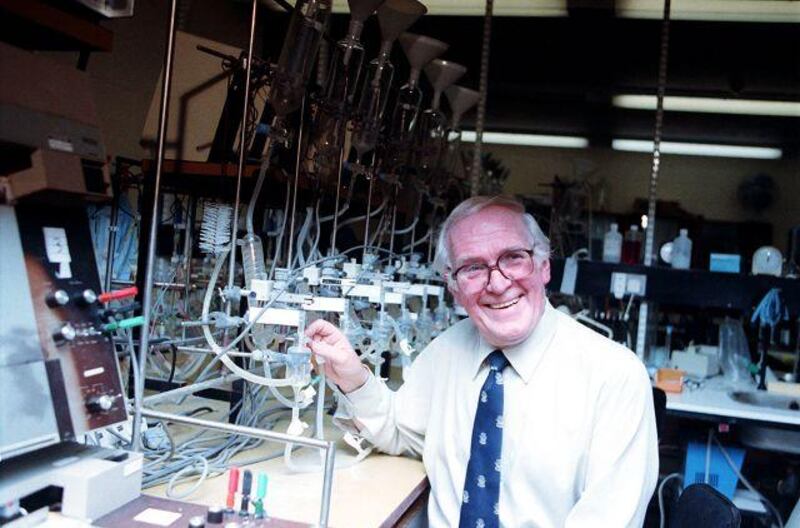Millions of hearts beat a little more steadily, and somewhat longer, thanks to the pioneering work of Sir James Black. Awarded the Nobel Prize in Medicine in 1988, he gave the world two of its most popular prescription drugs, propranolol and cimetidine, helping to lower blood pressure, quell anxieties and ameliorate acid-peptic ulcers on a global scale. The fourth of five sons born in Scotland, his precocious intelligence propelled the 15-year-old Black to study medicine at the University of St Andrews on a residential scholarship. Later, during the 1950s, as an academic physiologist at Glasgow University's veterinary school, he became interested in the detrimental effect that adrenalin, the stress hormone, could have on people suffering from heart disease.
He looked to developing drugs to annul such effects and thus decrease the heart's demand for oxygen, where the tendency among scientists at the time was instead to increase oxygen supply to the heart. By 1962, he was working for ICI Pharmaceuticals, much to the disapproval of his peers who saw entering the pharmaceutical industry as a betrayal of one's scientific principles. Describing himself as a "pharmacological toolmaker", Black experimented with various formulae before discovering the drug netherlide, the first beta-blocker.
In time, he went on to develop safer and more effective drugs, in particular propranolol. The drug revolutionised the management of angina, which had previously been treated with nitrate drugs, such as nitroglycerine. The following decade, while working for Wellcome Laboratories, he developed cimetidine, which inhibited the production of acid in the stomach. Sold from 1975 under the brand name Tagamet, it soon became the biggest selling prescription drug of any kind in the world, with annual sales of around US$1 billion (Dh3.7bn).
Though profoundly successful, Black had a reputation for irascibility and moved frequently from one institution to another. In the late 1980s, he struck out alone, establishing his own laboratory, the James Black Foundation, with funding from the American pharmaceutical firm Johnson & Johnson. Sir James Black was born on June 14, 1924, and died on March 22. His wife Hilary predeceased him. He is survived by the couple's daughter Stephanie.
* The National






